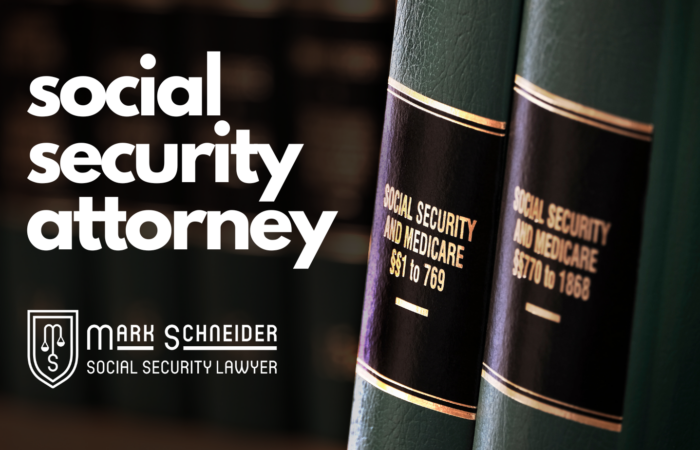How can I protect my privacy after the Equifax breach?
Equifax recently announced that 143 million people had their names, social security numbers, addresses, birth dates, and drivers license numbers exposed. Additionally, 209,000 people had their credit card information compromised as well.
Many people are asking the question, “What’s next?” It seems that in our technology-driven world, hackers accessing personal data is becoming more common.
This information breach isn’t an issue that is likely to blow over and be resolved quickly. Remember, the information that was accessed is enough to steal your identity. You cannot replace your birth date, social security number, or address with a few clicks of a mouse. A person who obtained your information could create a fake id, get arrested or stopped for a traffic violation, and you could have a warrant out for your arrest. From this point forward, the 143 million Americans will not only have to monitor their credit report but also their identity and reputation. Equifax has created a page for consumers to check if their data was included in the breach, to find out more click here

Download: What to do after a data breach
Transcription:
Mark: … doing great what episode?
Amanda: Four.
Mark: Okay, fourth show. How you doing, Drew?
Drew: I’m great Mark.
Amanda: Okay, so today we’re going to talk about something that is, it’s on my mind for sure, because I did go to the website to found that I too have been affected by this giant breach that everyone’s been talking about. So, we’re going to talk a bit about the Equifax breach, and highlight a few points about privacy. But first for the people at home, can you say a little bit about what this is, and why it’s important to our listeners?
Drew: Yeah. Are we going to introduce our special guest first?
Amanda: We can do that. I thought she was the surprise special guest at the end.
Mark: Well. We have a surprise special guest.
Drew: Surprise to me.
Mark: I think she’s surprised to be here too.
Amanda: We’re very happy to have you.
Drew: Do you know where you are?
Mark: We’re talking about what’s newsworthy with Equifax, but I know a lot of people have been following the news about the hurricane Irma in Florida, and our dear friend Gretchen Mills lived in Key West for many, many years, and she is a graduate of Beekmantown of 1999, her parents run Black Sheep Farms, and Black Sheep Florist. And Gretchen just got up as an evacuee, so how are things with you, and how is Key West?
Gretchen: Well, it’s been a tremendous life changing event for all of us involved, and I’m sure there’s been a trickle down effect for those less involved. So, I’m is in the process of still recovering, and checking in with the people who stayed in Key West as much as possible, there’s very little infrastructure to support the Keys community in general, so we’re just practicing patience, so here I am.
Mark: Well, it’s great that you made it out okay, and I hope that you get to go back soon.
Gretchen: Oh, thank you Mark.
Mark: So, and … Let’s talk about privacy.
Drew: Let’s talk about privacy, yeah. The reason that we wanted to talk about this this week is because privacy is something that’s on our minds all the time as lawyers, and every so often there’s something in the news that tells us that we probably should no longer be surprised that people have access to personal information about us whether or not we think we gave it to them, so that’s why we thought it was important.
Mark: And Equifax as people know got hacked into, on our websites you can go there and we do talk about ways that people can deal with it. But many people don’t just get hacked into, but whenever you’re online, whenever you’re on social media you are putting out your information and other people can get to it, and that has legal implications, right Drew?
Drew: Definitely has legal implications, so in this particular case Equifax is one of the credit reporting bureaus, and so they collect information any time you go apply for a loan, or a credit card, anything like that, they collect your social security number, they collect your address, all sorts of employment history. And that is information that can be taken and sold and resold and people can take your identity, and really cause you a lot of grief over the long run. But at the same time that’s information that you give to somebody else that gets stolen, there’s plenty of information that people put online or put out there that you don’t realize that you don’t need to steal it for other people to make bad use of information that you share willingly, publicly without really thinking so much about where it’s gonna go.
Amanda: Would you give us some examples of that, ’cause maybe it’s something that people take for granted. I think we overshare with social media and as you say, it’s become the norm to take a picture with the front of your house, and your address on it, that sort of thing.
Drew: Right, and as lawyers, we’re always going back to the law thing, we care because our people that we work with find themselves having their personal lives sifted through by investigators, insurance adjusters and lawyers who are trolling through their digital footprint over the past months, or years, looking for that one moment when they looked happy. And they’ll use that as a way of claiming that maybe you weren’t hurt after all in that car crash, or they want to know who your friends are, and find out who they can talk to about your friends. And you’re right, you can put a photograph online that has … Even if it doesn’t show your address many of those things have all that information built in to the photograph itself, and so you can be tracked just by where the … What they call geo tagging, where the photo is located people can basically find out exactly where you’ve been over the past six months, or six years.
Mark: Yeah, and it’s tempting if you’ve been in an accident, or had some kind of an event to put a happy face on, and not complain but that can be used against you if later on you’re in litigation.
Amanda: And again I think we take it for granted, because social media’s become such a part of what we do, it’s just … Check Facebook [inaudible 00:05:43] this happened and we put it on Facebook and I think that we need to be a bit more cautious with that sort of thing.
Mark: As people probably know by now, employers often do check your Facebook page before they hire you, so what seemed funny in college or at a party is not funny when you’re applying for a job.
Amanda: Absolutely. So, what should people know about the information that was hacked? I mean, as it says here 143 million Americans had their social security number, address, date of birth all accessed by the hackers, so what should we know as someone who may have been hacked?
Drew: Well, I think what you should know is there are resources out there that will allow you to check and see if your information is among the millions of accounts that were hacked, and if you go to our website at www.northcountrylaw.com you can … We’ve collected some of those resources, you can see if your information was in fact breached, and if so what you can do about it. There are credit freezes and there are some other things that can be applied to your accounts. I know there’s some conflict over whether that will cost money or not, that’s another level of hassle that people have to deal with. So I think the things is to be aware of it, and to know what tools you can do to address it.
You’re listening to Law Talk with Mark Schneider. If you have a question that you’d like them to discuss, or need help of an injury attorney please call 518-566-6666, or visit northcountrylaw.com.
Amanda: I know another thing you want to discuss is called arbitration, can you tell me a little bit about that, and its importance?
Mark: Yeah, arbitration is where instead of a judge, parties agree to hire a arbitrator who is a private person, who resolves disputes. And it’s been in the news, it’s part of the Equifax scandal or whatever you would call that, where often when you sign contracts, or get credit, or do various things, credit cards, banks, you agree to binding arbitration. And that’s very different than going to a court where you have an appeal process, you have discovery rights, and people can do class actions.
Drew: What’s a discovery right, Mark?
Mark: That’s a good question, discovery is where you get in litigation to learn the facts that the other party knows, and really allows you to dig deep into the situation, it’s very important. And you can do class actions in court and you can’t in arbitration. So, in situations where people have been ripped off for 10 bucks or 100 bucks, or 1000 bucks, it’s a way for people to get together and try to get remedy. So many corporations and institutions require you to use arbitration, and it really prevents consumers from getting results, from getting a remedy. And a supreme court of the United States, has said that that is valid, it really is one of the major anti consumer movements in this country.
Drew: Agreed.
Mark: Okay. And you really don’t have a right to not have it, it’s in the tiniest, tiniest print, credit cards or whatever, you agree to it, you don’t have a right not to agree to it. And if you don’t sign the contract then you don’t get the service, you may not get cable TV, or whoever it is that’s trying to make you go through arbitration. So it’s really a trend to take rights away from people and to help big corporations. It’s very pernicious, and it came up as part of the Equifax problem.
Amanda: Now, is there anything that people can do to not go into arbitration?
Mark: No.
Drew: Not really.
Mark: That’s the problem, they can vote for people who support people’s right to go to court, to have a jury. But no, right now this is a movement that’s very dangerous and people have to be careful of it.
Drew: Yeah, I think that lots of times people feel like the court system and jury’s are a hassle, and people don’t want to do jury duty. And I understand why, it’s time out of your day, it can be complicated if you’ve got work, or family care responsibilities. But, man, I’d certainly rather have 6 or 12 of my peers deciding whether I’ve been treated unfairly than somebody in a blue suit up on the 30th floor of a building in Albany who’s paid for by the corporations who impose those obligations on us.
Mark: Arbitration is different from mediation, and mediation is something that we do support and do use, mediation is where two parties, whether a lawsuit, or a divorce, or anything get together to have a neutral person help them reach an agreed upon resolution. And we think that’s a wonderful way to resolve disputes, and we often use it with our clients, and it often works.
Amanda: Okay. Now, we are just about out of time, I would like to say thank you for coming in, is there anything else we should say before we wrap up?
Mark: Yeah, our friend and marketing director Kim Cummings just went and got certified as a bicycle instructor.
Amanda: Woo, congratulations Kim.
Mark: And we do a lot of work with bicycle riders who’ve been in accidents, and we like to make sure that bike riders are safe, as well as cars, so we’d like to applaud Kim-
Amanda: Yay.
Mark: … and this great accomplishment.
Amanda: You’re not on camera at all doing that, are you? No, she’s not, she’s doing the cheer though.
Gretchen: Yeah.
Mark: And so if anybody would like to have Kim talk about safe bike riding to groups, to schools, she is now certified, and would be happy to come and talk to you. An also Drew and I are always happy to talk to groups or individuals about any legal issues particularly with injuries and accidents and social security issues.
Amanda: Now, there also was a blog post about the data breach so people can find that on your website, is that correct? Yes, Kim.
Drew: Yes Kim.
Kim: The information is on … about the Equifax breach, and what you can do afterwards.
Amanda: And that website is northcountrylaw.com. I think that’s gonna do it for us today guys and gal, thanks for joining us. Do you want to say hi to anybody while you’ve got the microphone? Okay.
Gretchen: Well, of course I’ll just say hi to my dad, Jeff Mills.
Amanda: Yay. Well, thanks so much for coming in we’ll see you in about two week and that does it for today’s show, Law Talk is provided for educational and informational purposes only and should not be construed as legal advice, or as an offer to perform legal services on any subject matter. If you’ve been hurt and don’t know what to do, call Mark and Drew at 518-566-6666.






